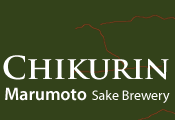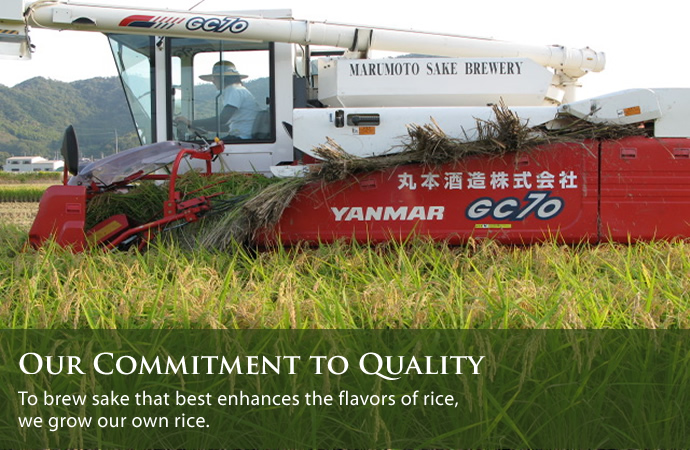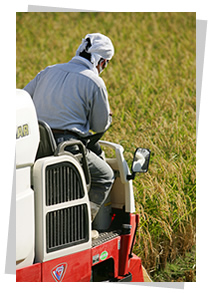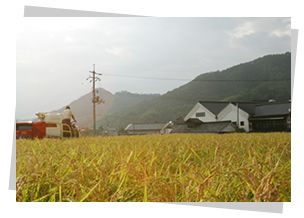![Organic Sake CHIKURIN [Marumoto Sake Brewery]](images/HeaderLogo.gif) |
 |
![Organic Sake CHIKURIN [Marumoto Sake Brewery]](images/HeaderMenuUpper01.gif) ![Organic Sake CHIKURIN [Marumoto Sake Brewery]](images/HeaderMenuUpper02.gif)  |
|||||
 |
 |
 |
 |
 |
 |
||

![]() Our Commitment to Quality
Our Commitment to Quality
![]()


We attach much importance to the dry impact as well as the flamboyant fragrance of our sake. Adding new depths to our products are our pursuit for tastiness of our ingredients and the overall balance in flavor. Sake’s chief ingredient is rice. Marumoto Brewery is rigidly committed to the quality of the rice we use.

The Yamada-nishiki rice variety we use is considered by many the premium brand for sake brewing. Though breweries can order specific varieties and specify grades of the rice that they purchase, minute differences in quality do occur. Because breweries cannot choose the paddies the rice grains are cultivated, rice grown in various paddies become blended as they are sold by the weight.
The grains of Yamada-nishiki rice are large. Rice farmers of this variety have a tendency to give seedlings excessive amounts of water and fertilizer, or plant the seedlings in small intervals. Ideal rice growing may be too much to ask for. As a result, quality of the rice do suffer, be it in the amounts of protein or density of starch in the grains. In a nutshell, the quality of rice ultimately is determined by the paddies the grains are grown in.

No matter how hard one tries to cook delicious meals, the efforts will virtually be wasted if the ingredients are bad. The same rule applies to sake brewing. To make good sake, there is a need to maintain the quality of the rice at all times. Furthermore, the quality of the rice is determined by the paddies the crop is cultivated. We believe that the only solution to securing the quality of rice is to form fields on our own. This is why we grow our own rice.


We believe that what makes rice superior is not the size of the grains but how they are grown. Specifically, the kind of paddies they are cultivated, the way they are grown, their yield per “tan” (the base unit of rice paddy size) are our primary concerns, among other factors. We draw the line at pursuing larger yields with help of pesticides and fertilizers – the mainstream method of rice growing in Japan. Rather, we are growing superb quality Yamada nishiki variety by pushing the crops to their limit to allow them to grow stronger and healthier.


We employ the “san-ou” method of cultivation, which deliberately makes the rice wither and turn golden-yellow due to malnutrition three times before harvest. We believe this is the secret to growing superior rice. It’s done for the first time just prior to planting saplings in the spring, then at about early August when the grains begin to grow to reduce the supply of nutrients to the stalks. The plants are again exposed to heat with less water for the last time prior to harvest, and the husks turn golden yellow.
It is this “san-ou” method that ensures healthy rice, because nutrients are supplied not to the leaves or stalks, but to the grains.

The Japanese government, in 2003, designated Kamogata Town, where our brewery stands, the nation’s first special deregulation zone for cultivating rice specifically for sake brewing. This was part of the nation’s efforts to promote structural reform. This made it possible for rice breweries like us to grow our own rice crops, Thanks to this decision, our goal to make sake from estate-grown rice gained momentum.